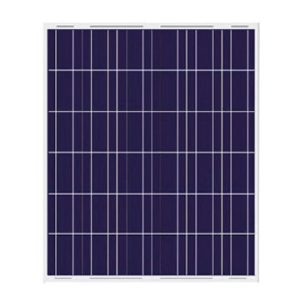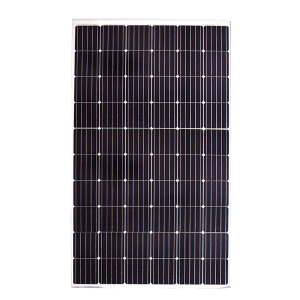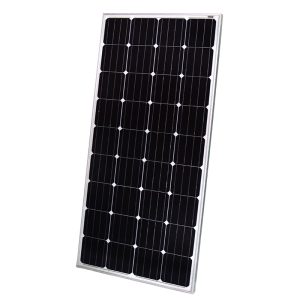Introduction
If you’re looking to generate solar power for your home, a 100-watt solar panel can be an excellent starting point. It’s an affordable option that can provide a significant amount of energy, depending on your location and how you use it. In this article, we’ll explore how many amps per hour you can expect to generate from a 100-watt solar panel.
Understanding Solar Power
Before we dive into the specifics of amps per hour, it’s essential to understand the basics of solar power. Solar panels work by converting sunlight into electricity, which can be used to power your home’s appliances and devices. The amount of energy a solar panel can generate is measured in watts, and the amount of power it can produce over time is measured in watt-hours.
Factors Affecting Solar Power Generation
The amount of energy a solar panel can generate depends on several factors, including the size and efficiency of the panel, the angle and orientation of the panel, and the amount of sunlight available. For a 100-watt solar panel, you can generally expect to generate between 4-5 amps per hour in ideal conditions.
However, keep in mind that weather conditions such as cloud cover, rain, or snow can affect the amount of energy your solar panel can produce. Seasonal changes can also impact solar generation, with shorter daylight hours in the winter months resulting in lower energy production.
Location Matters
The amount of sun exposure you receive in your location will also have a significant impact on solar power generation. Areas that receive more sunlight throughout the year, such as the southwestern United States, will generate more power than areas with less sun exposure. Additionally, factors such as shading from trees or neighboring buildings can affect solar panel efficiency.
Maximizing Solar Power Generation
To maximize the amount of power your 100-watt solar panel can generate, it’s essential to ensure that it’s installed correctly and optimized for your location. This includes choosing a location that receives maximum sunlight exposure throughout the day, ensuring that the panel is angled correctly to catch the sun’s rays, and avoiding shading from trees or other structures.
You can also consider adding a solar tracker, which will follow the sun’s movement throughout the day, optimizing the panel’s positioning for maximum energy generation.
Conclusion
A 100-watt solar panel can be an excellent starting point for homeowners looking to generate their electricity. While the amount of energy generated per hour can vary depending on several factors, proper installation and optimization can help maximize the amount of power your solar panel can produce. By investing in solar power, you’ll not only save money on your electricity bills but also contribute to a more sustainable future for our planet.
How many amps per hour does a 100-watt solar panel produce?
A 100-watt solar panel can generate up to 6.67 amps per hour in ideal conditions. However, the actual amount of amps per hour produced by the panel depends on various factors such as the level of sunlight, temperature, and shading.
How many 100 watt solar panels do I need to charge a 100Ah battery?
To charge a 100Ah battery with a 100-watt solar panel, you need to use a charge controller and connect the solar panel to the battery. A 100Ah battery requires about 1,200 watt-hours to charge fully, which can be achieved by using a 100-watt solar panel for 12 hours. Therefore, you would need at least one 100-watt solar panel to charge a 100Ah battery.
How long does it take for a 100-watt solar panel to charge a 12V battery?
The time it takes for a 100-watt solar panel to charge a 12V battery depends on several factors, including the battery’s capacity, state of charge, and the amount of sunlight available. In ideal conditions, a 100-watt solar panel can charge a 12V battery within six to eight hours. However, if the sunlight level is low or if the battery is in a low state of charge, it may take longer to charge the battery.



